The elected government in Pakistan has found that the little control it had over the army has been completely eroded, says B Raman
General Ashfaq Pervez Kayani, Pakistan's Chief of the Army Staff, who had taken the army back into the barracks after succeeding General Pervez Musharraf and announced that it would no longer dabble in politics, has reversed his past stand and re-asserted the role of the army as one among equals -- along with the executive, legislature and the judiciary -- in matters concerning national security.
His action in filing before the Supreme Court a separate affidavit in connection with the inquiry being undertaken by the court under Chief justice Iftikhar Ahmed Chaudhury into the memogate affair, without getting the affidavit vetted by the ministry of defence and approved by Prime Minister Yusuf Raza Gilani, indicates the assertion of the right of the army to take an independent view in matters concerning national security without having its view approved by the elected executive.
Memogate refers to the allegations made by Mansoor Ijaz, an American citizen of Pakistani origin, that at the instance of then Pakistani envoy to US Hussain Haqqani, Ijaz had passed on a memo drafted by him to Admiral Mike Mullen, the then Chairman of Joint Chiefs of Staff, expressing the concerns of the Pakistan government over the possibility of a military coup after the US raid into Abbottabad on May 2 to kill Osama bin Laden.
Click on NEXT for more...
Kayani, Pasha oppose Pakistan govt's stance
Image: Pakistan Army Chief General Ashfaq Pervez KayaniThe matter is already under enquiry by a committee of the National Assembly and Haqqani has resigned as the ambassador to the US. Expressing his dissatisfaction over the enquiry by the committee of the National Assembly, Nawaz Sharif, the leader of the Pakistan Muslim League, who himself was overthrown in a coup in 1999 by the Army then headed by Musharraf, filed a petition before the Supreme Court seeking an inquiry by the court. Other petitions on similar lines have also been filed by private individuals.
Taking notice of these petitions, the Supreme Court had called for affidavits giving their comments, inter alia, from President Asif Ali Zardari, Prime Minister Yusuf Raza Gilani, the ministry of defence, Haqqani, Ijaz, Kayani and Lieutenant General Ahmed Shuja Pasha, director-general of the Inter-Services Intelligence.
The affidavits submitted by Kayani and Pasha do not oppose the enquiry by the Supreme Court whereas the government's view has been that since a committee of the National Assembly was already looking into the matter, there was no need for an enquiry by the court.
Click on NEXT for more...
Kayani and Pasha agree on memogate issue
Image: Gen Ashfaq Parvez Kayani (right) with ISI chief Lt Gen Ahmed Shuja PashaKayani and Pasha have taken a diametrically opposite stand of not questioning the need for a separate enquiry by the court. A careful reading of their affidavits would also indicate that they do not question the veracity of the claims of Ijaz, which have been strongly denied by Haqqani.
Thus acting independently, the army has taken a stand which is at variance with the stand of the government and Haqqani and has sought to give credence to the version of Ijaz.
An equally intriguing aspect is that Lieutenant General (retired) Naeem Khalid Lodhi , defence secretary, submitted his own affidavit to the court without getting it cleared by the government.
Click on NEXT for more...
Pakistan PM Gilani suspects a conspiracy
Image: Pakistan Prime Minister Yusuf Raza GilaniIn this affidavit, he took the stance that the Army and the ISI were not under the operational control of the ministry of defence. What this amounts to is his saying that Kayani and Pasha were entitled to take an independent stand before the court without having it approved by the government.
It is this open assertion before the court -- of the independence of the army in national security matters in an enquiry initiated on the basis of a petition by Nawaz -- that made Gilani tell the National Assembly and a public gathering that there was a conspiracy against the government.
He also rejected the notion of the independence of the army in national security matters and underlined that the army is subordinate to the government and cannot be a state within the state.
Click on NEXT for more...
'No compromise on national security'
In comments apparently in response to those of Gilani, Kayani, during a visit to army posts in the Mohmand and Kurram agencies on December 23, denied the feverish speculations of a possible coup and asserted the correctness of the position taken by the army on the memogate issue.
He reportedly said, "Irrespective of all other considerations, there can be no compromise on national security."
Kayani strongly dispelled speculations of a military takeover and said, "These are misleading and are being used as a bogey to divert focus from the real issues."
In separate comments, Chief Justice Iftikhar Mohammad Chaudhury has ruled out any ex-post facto validation of a coup. There has never been any danger of a coup because of the present independence of the judiciary.
Click on NEXT for more...
Pakistan army may encourage jihadi forces
The real outcome of the present controversy is that the elected government has found that whatever little control it had over the army has been eroded. The army is back from the barracks as a political gladiator, determined to play an independent role in matters concerning national security without having to secure the approval of the civilian government.
What we are seeing in Pakistan is not a military coup that would require ex-post facto validation by the court, but a de facto coup that would not require any such validation.
It is likely that the army, to further assert its independence and to rally the support of the religious parties and jihadi forces, might encourage and incite these forces to increase their activities against India in order to re-justify the primacy of the army in national security matters and to underline that the army better protects national interests than the elected civilian leadership. India has to be alert to the dangers of a new surge in terrorism in Jammu and Kashmir and new attacks of mass fatality terrorism in the rest of India.
Click on NEXT for more...

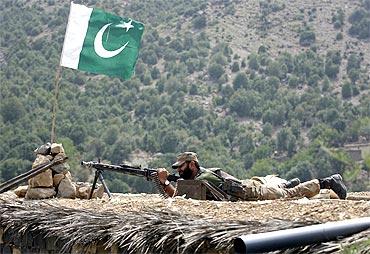
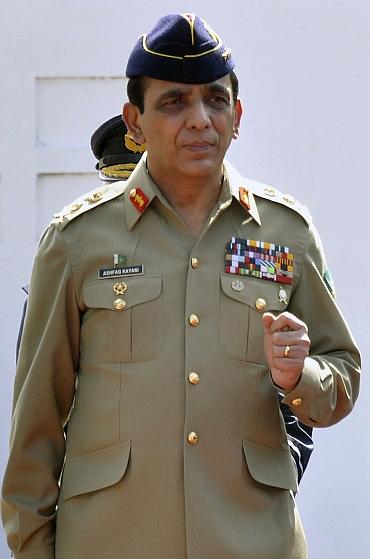
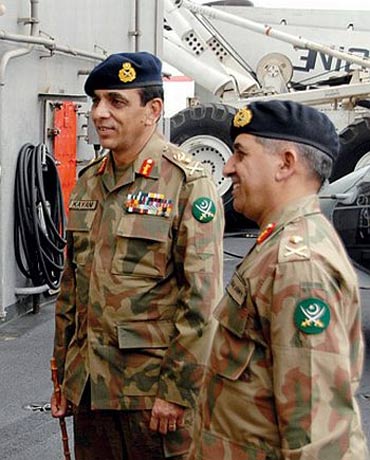
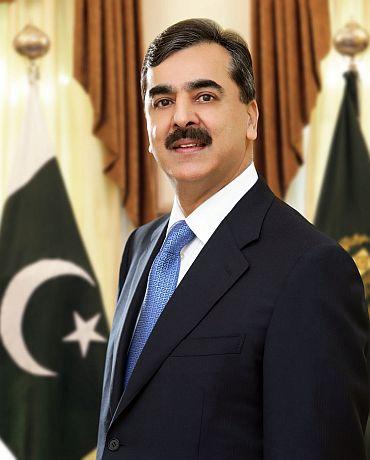
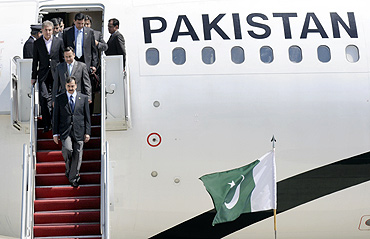
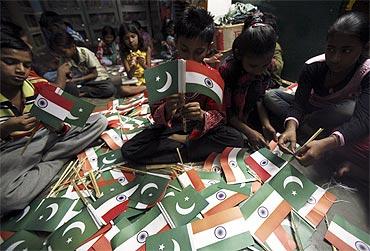
article